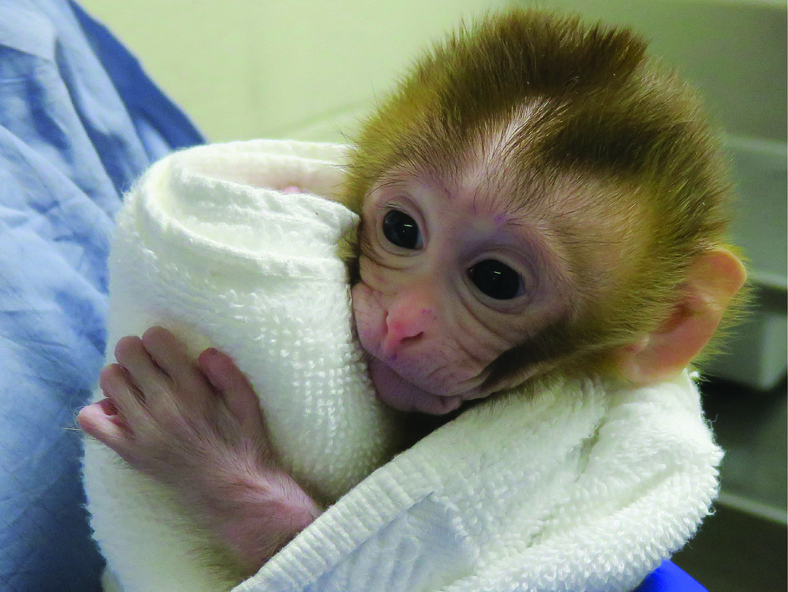From the University of Pittsburgh School of Medicine

Researchers at the University of Pittsburgh School of Medicine and the Magee-Womens Research Institute (MWRI) report they have successfully frozen immature testicular tissue from a monkey and then later used to restore fertility to the same animal.
Researchers hope the technique will make it possible for boys made infertile by cancer treatments will be able to father offspring later in life.
One in three childhood cancer survivors is at risk of becoming infertile due to chemotherapy or radiation, and since their sperm or eggs have not matured, assisted reproduction using those sperm or eggs is not an option when they become adults.
Boys are not born with mature sperm. Rather, hormonal changes during puberty lead to an increase in testosterone, which activates stem cells in the testes to start producing sperm.
In prepubertal boys, chemotherapy, radiation or other medical treatments can kill these stem cells and cause permanent infertility.
“Previous research in non-human primates has demonstrated that sperm could be produced from autologous transplants of frozen prepubertal testicular tissue, but the ability to produce a healthy live offspring – the gold standard of any reproductive technology – has not been achieved until now,” said first author Adetunji Fayomi, Ph.D., a former graduate student in Orwig’s lab and postdoctoral scholar at Pitt.
In the current study, Orwig and his team developed a non-human primate model of cancer survivorship. Prior to treating with chemotherapy, the researchers removed one testis from prepubertal rhesus macaques and cryopreserved the immature testicular tissue.
As the animals approached puberty, the other testis was removed. On the same day, they later thawed and transplanted pieces of the tissue as well as pieces of cryopreserved tissue under the skin of the same animal.
As the animals entered puberty, their testosterone levels increased, causing the grafted tissue to mature and produce sperm.
Eight to 12 months later, after the animals entered puberty, the researchers removed the grafts and found large numbers of sperm to be present.
They sent the sperm to their collaborators at the Oregon National Primate Research Center at Oregon Health and Science University who were able to generate viable embryos, which were then transferred to recipient females.
In April 2018, one of the females gave birth to a healthy female baby, which Orwig named “Grady” – a portmanteau of “graft-derived” and “baby.”
“With Grady’s birth, we were able to show proof-of-principle that we can cryopreserve prepubertal testicular tissue, and later use it to restore fertility as an adult,” Fayomi said.


